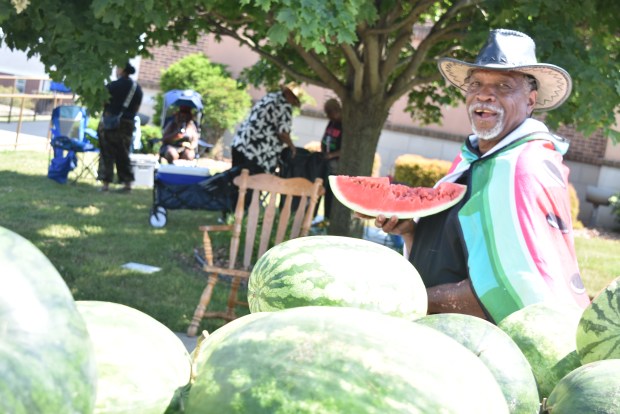Kane County needs to significantly raise its revenue or cut its expenses by 2027 to avoid dipping into required cash reserves to balance the budget, the county’s finance director said.
It is Kane County policy to have at least enough money on hand to operate without any revenue coming in for 90 days, Kane County Finance Director Kathleen Hopkinson told the Kane County Board Executive Committee on Wednesday. She said the county built up its reserves above the required amount during the COVID-19 pandemic by using federal relief funds to help pay for salaries and benefits.
But with those relief funds now gone, the county has been spending its reserves to balance the budget.
“Assuming nothing changes and we have very modest increases in revenue and expenses, by 2027 we will have no excess reserves, and we will actually be dipping into our 90-day reserves,” Hopkinson said at the meeting.
For the 2025 budget, Hopkinson recommended that county offices limit the number of vacant positions they budget to fill and keep overall expenses within 3% of last year’s budget.
Committee members at the meeting on Wednesday generally agreed with her suggestions.
Even with these concessions, the county will likely need to spend roughly $11 million from its reserves to balance the 2025 budget unless another source of revenue is found, Hopkinson said. She projected the county would have around $114 million in revenue and would spend around $125 million in 2025.
“I do think we have no other option than to use fund balance, certainly for this year,” District 24 County Board and Executive Committee member Jarett Sanchez said. “It really raises the question of what are we going to do with this fiscal cliff that is coming.”
The county used around $5.5 million from its reserves to balance the 2023 budget and is planning to use around $9.6 million to balance the 2024 budget, according to Hopkinson’s presentation.
She gave a similar presentation to the Kane County Finance and Budget Committee on Feb. 28, where she said that the gap between revenue and expenditures will continue to grow unless the county is able to increase revenue or decrease its spending.
If more money is not found by 2028, the county’s credit rating will be impacted and some county positions will need to be eliminated to significantly cut spending, Hopkinson said.
By using pandemic relief funds from the federal government to pay for staff salaries, Kane County built up $98 million in reserves by the end of 2022, she said.
By the end of 2024, those reserves are projected to drop to almost $77 million, according to her presentation. Of that amount, about $32 million is required to be held as the county’s 90-day reserves.
Some of the county’s reserves should also be transferred to the capital project fund starting in 2026, she suggested. The money in that fund is used to build or renovate buildings, improve parking lots and do similar projects.
“That fund is almost entirely funded by monies that have been transferred over the years,” Hopkinson said. “If the Building Management Department does all their projects, they will spend down that capital project fund and have no more money to do any of the facilities maintenance work that needs to be done across the county.”
Budget forecasts out to 2028 were made by Hopkinson to get a head start on the 2025 budget process. During the 2024 budget planning process last year, the county board waited until the end of the year to balance the budget, something Hopkinson previously said she hopes to avoid in the 2025 budget process.
By deciding on revenue amounts and sources up front, she hopes county offices and departments will base their budgets on the expected revenue instead of just requesting everything they want, Hopkinson has said.
At the Feb. 28 Finance and Budget Committee meeting, committee members briefly discussed ways to raise revenue, such as raising property, gas or sales taxes, and ways to lower spending by making the county more efficient, but they made no formal decisions.
At the Executive Committee meeting on Wednesday, District 22 County Board member Vern Tepe said he would be suggesting specific ways to raise revenue and cut expenses at the March meeting of the board’s Finance Committee, of which he is a member.
The county has not raised property taxes in 14 years even as the price of wages and contractual services have increased, Hopkinson said recently. Only about 4% of a Kane County resident’s tax bill goes to the county itself, with the rest going to other local governments like school boards, municipalities, townships and more, she has said.
rsmith@chicagotribune.com





